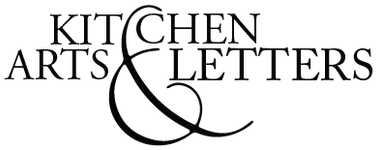5 Books on Ingredients That Reveal the Richness of Food History
May 12, 2023
Certain ingredients have a transformative power that goes beyond just flavoring our meals. These ingredients shape culture, history, and society, leaving a lasting impact on the way we eat and live. In the world of culinary literature, there are many books that explore the fascinating stories of these ingredients.
In this article, we will take a closer look at five such books that focus on a single ingredient, each offering a unique perspective on how it has made a mark on food history. From Mark Kurlansky's exploration of the cod fish to Anne Mendelson's examination of milk as a superfood, these books offer a deep dive into the history, culture, and science of some of the most significant ingredients in our culinary repertoire.
1. Cod: A Biography of the Fish That Changed the World by Mark Kurlansky

Mark Kurlansky’s Cod: A Biography of the Fish That Changed the World is a literary chef-d'œuvre that takes readers on a journey through the history of the cod fish, exploring its profound impact on human society throughout the ages. Kurlansky's eloquent phrasing and meticulous research make for a captivating read, inviting us to plunge into the complex and fascinating world of cod fishing.
Sifting through the pages of Cod, we discover the intricate relationship between cod and human civilization as we follow its path from the ancient world to the present day. From the Basques and the Vikings to the New World settlers, cod played a crucial role in shaping the economies and cultures of numerous societies.
Kurlansky's graphic descriptions of cod's natural habitat and the fishing practices used to catch it give us a deep understanding of the environmental and ecological factors that influence the species. His analysis of the cultural significance of cod in art, literature, and religious traditions offers a unique perspective on the impact of this fish on human culture.
As we progress through the book, we witness the impact of cod fishing on global trade, politics, and even warfare. Kurlansky deftly investigates the tension that arose as countries fought for control of the valuable resource, ultimately leading to overfishing and the depletion of cod populations.
In Cod, Kurlansky presents a compelling case for preserving the natural world and adopting sustainable fishing practices. Through his book, the author demonstrates the power of storytelling in helping us appreciate the beauty and complexity of the world and the profound impact it will have on our lives if we don’t. Anyone looking for a gateway into learning more about food history will find this book enlightening.
2. The Oysters of Locmariaquer by Eleanor Clark

Eleanor Clark's The Oysters of Locmariaquer is a masterful work, offering a poetic and intimate exploration of one of the world's most beloved seafood delicacies.
Published in 1964, the book is a cultural and historical journey into the world of oyster harvesting in the small village of Locmariaquer, located on the picturesque coast of Brittany, France. It centers around the Belon oyster, a specific type of oyster found in the region, known for its unique flavor and highly prized by connoisseurs.
With detailed research and composition, Clark takes readers on a sensory journey through the intricate and fascinating process of oystering. From the breeding of the larvae to the delicate harvesting of the mature oysters, she captures the essence of this timeless tradition with deep reverence and appreciation.
Through the lens of oyster cultivation, Eleanor Clark paints a vivid portrait of a unique coastal community and their deep connection to the sea. It is a poignant reflection on the fragility of life and the passage of time.
The Oysters of Locmariaquer is a timeless classic of nature and travel writing that continues to inspire readers with its richly detailed observations and lyrical prose.
3. The Land Where Lemons Grow: The Story of Italy and Its Citrus Fruit by Helena Attlee

The Land Where Lemons Grow: The Story of Italy and Its Citrus Fruit is an enchanting and lyrical work that takes readers on a journey through the rich history and culture of Italian citrus, particularly lemons, but also oranges, grapefruits, and others.
Published in 2014, the book is a tribute to the vibrant flavors, tantalizing aromas, and fascinating stories that have made citrus such an integral part of Italian cuisine and identity.
With a deep passion for her subject, author Helena Attlee invites readers on a sensory adventure through the many citrus varieties grown and cultivated in Italy for centuries.
Her book delves into the rich history of these fruits, from their introduction by Arab traders to the development of the Italian citrus industry. It includes information about the cultivation of various citrus varieties and the establishment of botanical gardens, as well as the Renaissance artists and poets who celebrated the fruits' beauty and flavor.
But The Land Where Lemons Grow is more than just a book about lemons. Attlee uses the fruit as a means to explore the complex and often turbulent history of Italy itself, from the conflicts between Northern and Southern Italy to the impact of war and political upheaval on the country's agriculture and food traditions.
Attlee's writing is a testament to the power of culinary literature to transport us to another time and place and to awaken our senses to the beauty and complexity of the world around us. The Land Where Lemons Grow is for anyone who loves food, history, and travel and those who appreciate the transformative power of a good book.
4. Butter in Ireland: From Earliest Times to the 21st Century by Peter Foynes, Colin Rynne & Chris Synnott

Delve into the world of dairying and butter-making with this enthralling history presented by the esteemed Cork Butter Museum. Butter in Ireland: From Earliest Times to the 21st Century is a sumptuous and thought-provoking exploration of the rich and storied history of Irish butter-making. Written by Peter Foynes, Colin Rynne, and Chris Synnott and published in 2014, the book is a loving tribute to the people, places, and traditions that have made butter an integral part of Irish cuisine and culture.
From prehistoric times to the modern day, the authors contribute their knowledge to a series of articles exploring the rich and multifaceted story of this culinary art. They dig deep into the earliest days of dairy farming in Ireland, tracing the evolution of butter-making from simple family operations to large-scale industrial production. They consider the many challenges and innovations that have shaped the industry, from technological advances to changing consumer tastes and trends.
In this book, you will discover how Neolithic pottery fragments revealed the fascinating science of lipid residues; you’ll explore the evolution of churning methods from ancient times to cutting-edge technology. You may marvel at how butter emerged as a quintessential Irish agricultural product and learn about the curious practice of aging butter in bogs, still in use as late as the eighteenth century.
However, Butter in Ireland is more than just a history of an industry. It celebrates the people who have dedicated their lives to the art of butter-making and the communities that have built their identities and economies around this cherished produce. Through the authors' words, we meet the farmers, butter-makers, and other artisans whose skill and passion have made Irish butter famous around the world. We learn about the unique flavors, textures, and aromas of different types of Irish butter and how they have influenced the country's cuisine and culture.
Throughout the book, the authors probe the complex relationships between butter-making and issues such as gender roles, land use, and globalization, inviting readers to consider the broader implications of this humble yet powerful product.
While Irish butter might not pique everyone’s interest, for those studying food history, this book is sure to instill an appreciation for the art of butter-making. Readers will likely wish there were books like this on other ingredients.
5. Spoiled: The Myth of Milk as Superfood by Anne Mendelson

For thousands of years, milk has been a vital component of many cultures' food supply (as with butter in Ireland, above). However, Anne Mendelson's keenly investigated book Spoiled: The Myth of Milk as Superfood enlightens us on the flawed notion that fresh milk is indispensable to a balanced diet.
Her eloquent account examines the scientific and cultural blindspots—as well as the avarice—that gave birth to a series of misguided policies and attitudes.
Drawing on her extensive research, Mendelson exposes the complex and often surprising history of milk consumption. As a culinary historian whose previous works have delved into the origins of The Joy of Cooking and Food and the Chinese American Journey, Mendelson writes with cutting insight on how incomplete science and faulty assumptions led to a push for fresh milk for all as part of America's broader drive to standardize the food supply and stamp out public health hazards. Though these goals may have had benefits, they were often applied haphazardly, with little regard for the fact that what worked in one region may not be suitable for another.
One of the book's key arguments is that milk is not the nutritional powerhouse it is often claimed to be. Mendelson challenges the widespread belief that milk is an essential source of calcium and other vital nutrients, arguing that the available scientific evidence does not support these claims. She also analyzes the many health risks associated with milk consumption, including allergies, lactose intolerance, and the potential for contamination by harmful bacteria.
Beyond its nutritional and scientific aspects, Mendelson investigates the complex relationships between milk producers and consumers and the ethical concerns surrounding the treatment of dairy animals. She also examines the environmental impact of industrial-scale milk production and the challenges facing small-scale milk producers in an increasingly competitive and globalized marketplace.
Spoiled is a thought-provoking and nuanced exploration of a subject that is too often taken for granted. Mendelson's writing presents a convincing case for re-evaluating our assumptions about milk and its role in our diets and culture. Whether you are a food enthusiast, a health-conscious consumer, or simply interested in the history and culture of food, Spoiled is a book sure to spark lively debate and discussion.
A Rich Narrative
The exploration of single ingredients that changed food history reveals the profound impact that seemingly simple food items can have on the development of human societies, economies, and cultures. Through the stories of cod, oysters, citrus fruits, butter, milk, and many others, we can better understand the intricate relationships between people and the natural world, as well as the enduring influence of these ingredients on culinary traditions across the globe.
These books not only provide insight into the historical and cultural significance of their respective ingredients but also serve as a reminder of the importance of sustainable practices in agriculture, fishing, and food production. They encourage us to appreciate the intricate processes that bring these foods to our tables and to recognize the dedication and expertise of the individuals who cultivate, harvest, and transform these ingredients into the meals we enjoy.
If you would like to further explore the role of food in history, politics, and culture, we have hundreds of titles in stock to enrich you. If you can’t find what you are looking for on the website, contact us at letters@kitchenartsandletters.com, and one of our expert team will find the perfect book for you.

